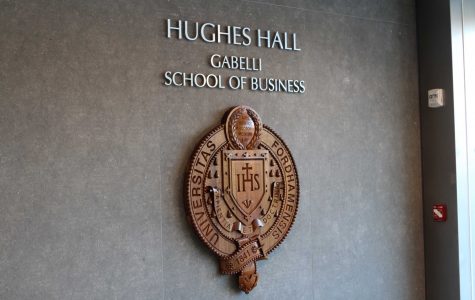There has recently been a shift in culture at Fordham as people are finally willing to speak out about issues regarding Student Affairs. We have seen this in Fordham Daily’s “RAs SPEAK OUT: ResLife has become a dysfunctional workplace” as well as The Ram’s “When CAB and OSLCD Collide” and “How Administrators Caused a Culture of Apathy.” All of these articles address one recurring problem: the Office of Student Affairs.
Fordham Daily’s “RAs SPEAK OUT: ResLife has become a dysfunctional workplace” serves as an exposé of Dean (Kimberly) Russell, and subsequent feelings many RAs and Residential staff have about her reign as Director of Residential Life. My biggest concern with this article is its failure to expose the overarching problem at Fordham: Administration of Student Affairs. I refuse to believe that administrators such as Dean Rodgers (Dean of Students) and VP Jeffrey Gray (VP of Student Affairs) were blindsided by this article.
I think they have long been aware of allegations regarding Dean Russell, as many Residential Life staff have refused to leave quietly. Many Residential Staff members voiced detailed complaints to Fordham’s Human Resources department before leaving the university. So the real question at hand is: Why is Russell still Director of Residential Life and why has Fordham Administration allowed these behaviors to go on for so long? Dean Rodgers and VP Gray need to be held accountable for allowing such an environment to persist. Why have neither Dean Rodgers, VP Gray nor Father McShane released any sort of statement ensuring these allegations will be investigated?
The Fordham Ram’s recent article “When CAB and OSLCD Collide” details the scheduling nightmare many clubs face with OSLCD (Office of Student Leadership and Community Development). Unfortunately, it took a very large event to finally cause students to speak out in outrage against OSLCD. OSLCD has been long known to play favorites, especially among the big four organizations on campus — Residence Halls Association (RHA), Campus Activities Board (CAB), Commuting Students Associate (CSA) and United Student Government (USG).
This article highlights yet another key player in the dysfunction of this department — Shannon Driscoll, a person whom I believe needs to approve events, programs, and logistics in a more timely manner. However, this hints at an issue that runs deep in OSLCD and Student Affairs at large: understaffed departments. When a department is understaffed, students take the hit, slowing down even basic processes such as room reservations for programming. In addition to Dean Rogers and VP Gray, we must also hold Dean Alanna Nolan (Assistant Dean of OSLCD) accountable as a leader in a department that has largely lost touch with the needs and wants of our students.
So, why is change so difficult to achieve at Fordham? Most students at Fordham are given four years to try to accomplish something of value and merit. When many students come in as freshmen they are often clueless about the issues in Student Affairs. As a sophomore, students become more acclimated and more involved in different organizations on campus. Then, junior and senior years are spent trying to be efficient and improve student life on campus. However, when you are only given a year or two at a university to foster change, it becomes extremely difficult.
Administrators shuffle students around, having lengthy and redundant conversations to give a false sense of hope, ultimately waiting to push you out the door instead of trying to meet you in the middle. The Administration’s idea of “change” is having a conversation with students, opposed to actually changing any procedure or policy.
We need more than the exchange of ideas; we need progress. I have been at this university for five years in various capacities: a student, leader and employee. I am absolutely terrified to publish this and I do so with the intention of drawing attention to the underlying problems that exist at Fordham. I love Fordham far too much to let these issues slide. Far too many people come and go accepting the incompetencies that exist. Let’s stop the culture of silence and apathy.
Fordham calls on its students to follow the university’s values of cura personalis, care for the Whole person, and calls us to be men and women for others. I do not believe that our Administration upholds these values, really cares for the entire person, nor serves its students. Rather, each of us is just another student who will come and who will go. Administrators serve the university, the status quo and donors, while neglecting the next generation of donors — its current student body.
In RA training every year, Father McShane states that we should treat every person in front of us as if they are the most important student to ever enter Fordham. I wish his staff would follow his own advice.
— John Leto, GSB ’15, GSB ’16





